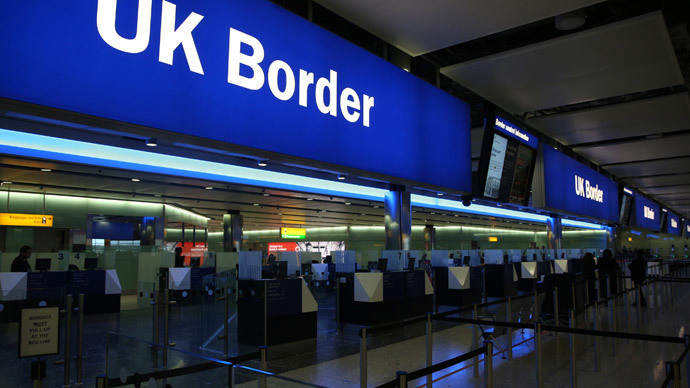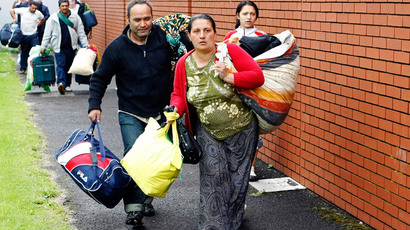EU immigrants bring UK economy £20bn

Immigrants to the UK from the European Union have contributed more than £20 billion to the British economy since 2011, a report reveals.
The study by researchers at University College London (UCL) showed that EU immigrants added £4.96 billion ($7.8 billion) more into the economy than they took out in public services, such as the NHS, education or welfare.
The report released Wednesday found those who had come from the original 15 EU countries, including Germany, France and Italy, contributed 64 percent more in taxes than they received in benefits.
Immigrants from Central and Eastern Europe contributed 12 percent more than they got back.
“A key concern in the public debate on migration is whether immigrants contribute their fair share to the tax and welfare systems,” said Professor Christian Dustmann, co-author of the study.
“Our new analysis draws a positive picture of the overall fiscal contribution made by recent immigrant cohorts, particularly of immigrants arriving from the EU.”
READ MORE:Tony Blair: Ending immigration would be ‘disastrous’ for Britain
Dustmann argued this is mainly due to the higher average labor market participation of European immigrants compared with natives and “their lower receipt of welfare benefits.”
“The recent wave of immigrants, those who have arrived in the UK since 2000 and driven the stark increase in the UK’s foreign born population, have contributed far more in taxes than they have received in benefits,” concluded the report’s authors, Dustmann and Frattini.
In contrast, the study showed those arriving from outside Europe over a 17-year period took more than they put back in. UK-born workers made a negative contribution of £591 billion to the economy. Immigrants from outside the European Economic Area (EEA) made a negative contribution of £118 billion.
However, the UK’s immigration minister, James Brokenshire, told Sky News that the focus of the report was not up-to-date.
The research “ends in 2011, whereas we have seen the pressure from EU migration – net migration, those who are coming versus those who are going out – over the course of the last 18 months it has more than doubled during that period,” he said.
“It also does not take into account pressure on schools, roads, housing services – those things that really matter to people in their communities.”
Immigration is a central topic in UK political debates ahead of next year's general election.
Prime Minister David Cameron is increasingly under pressure due to the growing popularity of the anti-EU United Kingdom Independence Party (UKIP). Cameron has therefore pledged to curb EU immigration if he wins next May's general election before holding an in/out EU referendum in 2017.
READ MORE:‘Point of no return’: Merkel warns UK could exit EU over immigration policy – report
The report’s findings are a boost to supporters of Britain's EU membership because it shows that free movement of labor impacts positively on the economy.
This comes as Germany Chancellor Angela Merkel, a supporter of the EU freedom of movement, said the UK is free to leave the European Union if it wants to change its open borders policy.














